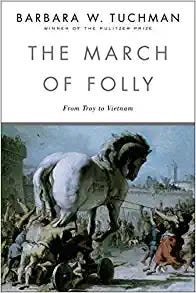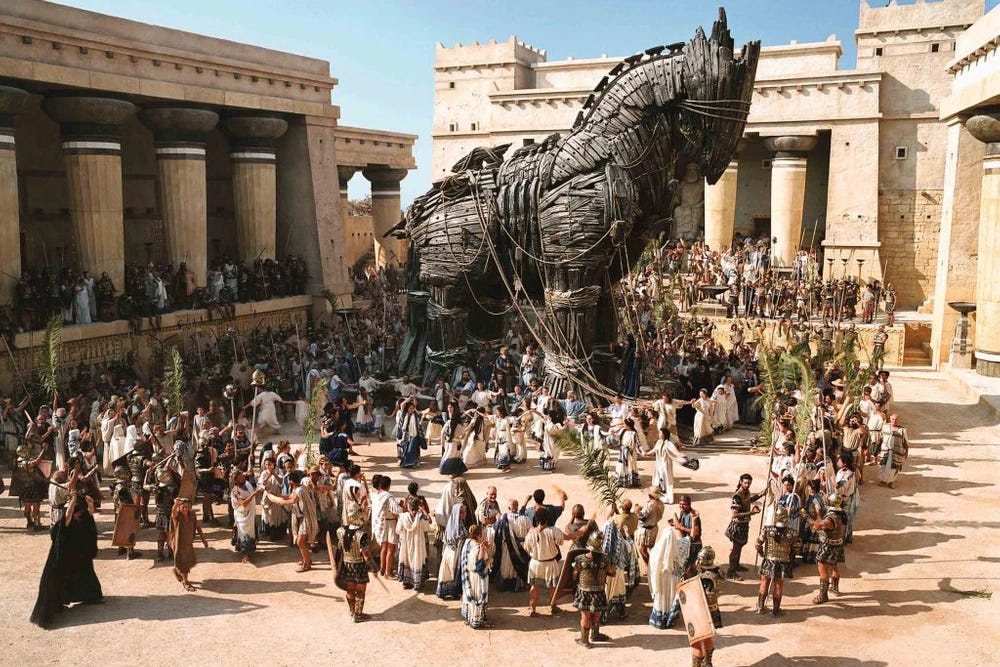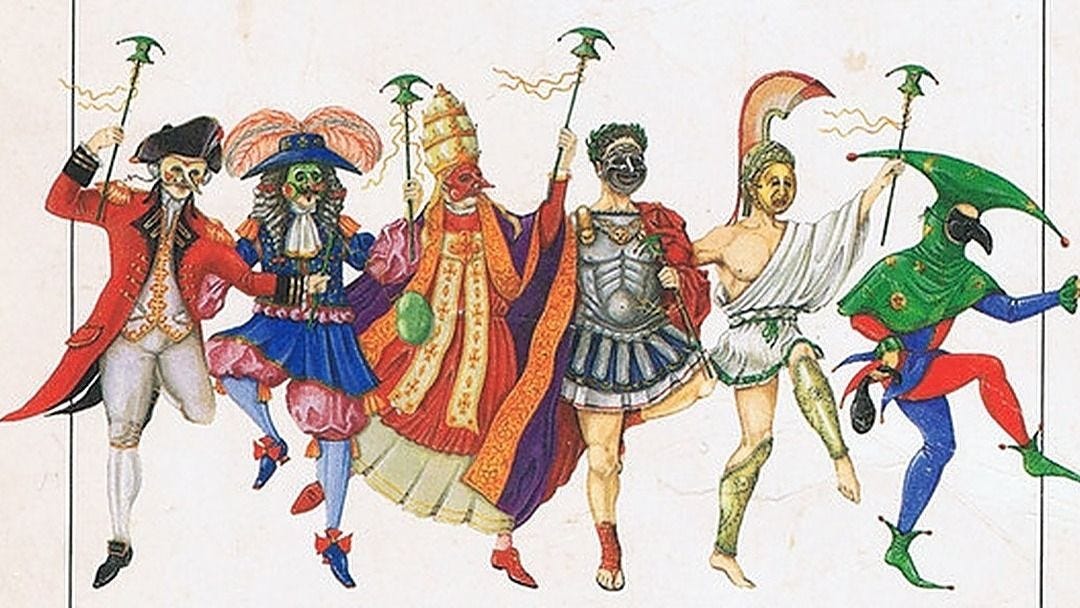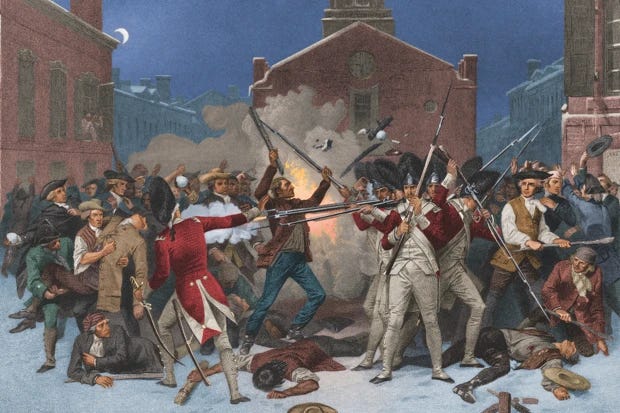Book Review: The March of Folly: From Troy to Vietnam By Barbara Tuchman
History shows how destructive the folly of man is. Reading The March of Folly, one is left with little faith in the ability of powerful government officials to not allow themselves to be ruled first by self-interest and hubris. Once this hubris is combined with the false feeling of omnipotence, the folly of history inevitably unfolds. The March of Folly shows once powerful governments start down a path, they often do not alter their course even when it is obvious they are unlikely to be successful in obtaining their agenda. The powerful delusion of cognitive bias sets in and they are unable to accept reality. They woodenheadly stick to their destructive path.
Wooden-headedness, the “Don’t-confuse-me-with-the-facts” habit, is a universal folly…
Tuchman shows how cognitive bias enables these leaders to ignore the many signs that their policies are failing and likely unredeemable. They shut out the voices of reason in favor of mealy mouth yes men. They underestimate their opponents and are often unable, or unwilling, to take the perspective of their foes. They are disabled by the myopic drunkenness of power. Tuchman focuses on four historical events: The Battle of Troy, The Corruption of the Renaissance Popes leading to the Reformation, The British losing its American Colony, and the Vietnam War.
After a great introductory chapter in which Tuchman shows that the pursuit of policy contrary to self-interest is as old as history itself, with such examples as: the Aztec leader Montezuma allowing the Conquest of Mexico by Cortes with a few hundred men, the German decision to resume unrestricted submarine warfare in 1916 and the Japanese decision to attack Pearl Harbor in 1941, and a number of other historical examples. She examines the folly of Troy taking the Greek wooden horse inside the walls of their city-state.
The story of the Trojan Horse is the supreme example of folly in ancient history. It shows what happens when rationality, and adhering to caution, are superseded by wishful thinking. Whether mythical or not, it is a warning from the ancient past of man’s ability to fall victim to folly and the vast repercussion such senselessness unleashes. It shows how unpredictable the march of history is. It illustrates it is often not the results of rational actions but human recklessness.
Despite the Trojans' assurance that Helen was not even in Troy, they did not believe it. The Greeks did not see themselves as the sole author of their destiny. They were steeped in religious belief. They were mere mortals in a world controlled by immortal gods. They believed the gods wished for war and the destruction of Troy. Life was dictated by the gods, fate, and destiny. The fall of Troy was ordained. Despite the warnings of Capys the Elder, Laocoon and Cassandra, to destroy the Horse, it was brought into the walls of Troy. The fall of Troy is portrayed by the Greeks as the inevitable unraveling of fate, while it is just one of history’s first examples of the role of human folly and the momentous consequences of such folly. It is incomprehensible that Troy would have fallen so easily after being held up under intense siege and battle for ten years. The ancients seemed unable to believe it could be due to the folly of man. It must be fate.
In the search for meaning we must not forget that the gods (or God, for that matter) are a concept of the human mind: they are the creatures of man, not vice versa. They are needed and invented to give meaning and purpose to the puzzle that is life on earth, to explain strange and irregular phenomena of nature, haphazard events and above all, irrational human conduct. They exist to bear the burden of all things that cannot be comprehended except by supernatural intervention of designs.
The incomprehensibility of the idiocy to bring the Trojan horse within the walls of Troy must therefore be explained away by the will of the gods and fate. It is too painful to accept that mere human stupidity and thoughtlessness plays such a momentous role in human history. It is much easier to take the position of the victim of the gods and fate.
Tuchman’s next historical example takes place during the Renaissance-- which is to say the period when the values of this world replaced those of the hereafter. The Renaissance Popes were a prime example of choosing worldly values over higher spiritual and religious values. They were caught up in the growing humanism of their time.
Discovery of classical antiquity with its focus on human capacity instead of on a ghostly Trinity was an exuberant experience that led to a passionate embrace of humanism.
This was the time in Church history when the commercialization of the Church reached its zenith; when Church offices were much more likely to be filled through simony than merit. When the sale of indulgences was common practice. The Church and Papacy were deeply enmeshed with the personal fortunes of those at the top of this hierarchy. The Renaissance Popes, Archbishops, and Cardinals felt ever more emboldened and deluded by their unchecked power and wealth. While at the same time the Dark Ages were beginning to be lit up by the growing secularization of the times. This was a time when printing combined with growing literacy was fomenting dissent. Those who could read or had people in their life who could read to them, could now read, or hear, the Bible for themselves. The Church was quickly losing control of its monopoly over the divine message. The six Renaissance Popes leading up to the reformation were extreme examples of placing self-interest above their office. Reading Tuchman’s portrayal of them, they seem to be more than just victims of the excesses of that period. They were the top religious leaders of their day yet seemed to totally lack any sense of spiritual mission and moral service.
Their three outstanding attitudes--obliviousness to the growing disaffection of constituents, primacy of self-aggrandizement, illusion of invulnerable status--are persistent aspects of folly.
And unfortunately, these outstanding attitudes are all too common in high government office still to this day.
The next folly Tuchman examines is that of the British Empire’s loss of the American colonies which King George III and parliament all but ensured through their stubborn and uncompromising taxation and high-handed administrative actions. King George and most in his government looked down on the American colonists as nothing more than a “rabble” of subjects who had no real choice but to submit to their supreme overlords. The British had just wrapped up the Seven Years War against France in the Americas in 1763. They gained greater territory in America following their victory over France, but they also racked up enormous costs from financing the war. They also left a “standing army” in the American colonies. The war which the colonist knew as the French and Indian war was over; and the colonists no longer felt they were required to house and feed the soldiers of the British Empire who were still in the colonies. They also failed to see why the British had to continue to keep a “standing army” in the Americas. Before the Seven Years war there was never a “standing army” in the colonies. The Quartering Act of 1765 was Great Britain's answer to the colonists' reluctance. Now the colonists were once again required to house and feed the British soldiers. The colonists of course resented this. After the Quartering Act, Great Britain established the Townshend Acts in 1767 to reestablish and reinforce their right to rule over the American colonies as they saw fit and to dampen the New York Assembly and the governor of New York from passing any new bills until they complied with the Quartering Act of 1765. The Townshend Acts also entailed other provisions which would extract more revenue from the colonies. The British ruling majority disregarded the feelings of the American colonists they were attempting to rule and continued their overbearing administration. The colonists saw this as inconsiderate and unjustified meddling without any true representation being applied. The British believed it was their right to enforce their supremacy over the colonists; while the colonists believed the British were attempting to prod them into rebellion to then crush them into further subjugation. The colonists would have likely allowed themselves to remain under the sovereignty of Great Britain if the British would have allowed them to administer taxes as they wanted instead of forcing the issue. One of the British Parliamentarians of the time who was critical of the British high-handed methods was Edmund Burke. He warns just prior to the outbreak of war:
“The absolute necessity of keeping up a concord of this empire by a unity of spirit.” This could only be managed, he said, by possessing sovereignty but not exercising it. Whether they liked it or not, the American spirit of liberty existed; their forebears emigrated because of it, and it remained stronger in the English colonists than probably any other people on earth. “It cannot be removed, it cannot be suppressed, therefore the only way that remains is to comply with it, or if you please, to submit to it as a necessary evil.” Here he reached the great prescription: “Magnanimity in politics is not seldom the truest wisdom; and a great empire and little minds go ill together.” Let the Coercive Acts be repealed, let the Americans tax themselves “by grant and not my imposition.” Allow them freedom and opportunity to grow rich and they will supply all the more resources against France and Spain.
The British failed to heed this enlightened warning. They never doubted that the colonists must succumb to their authority and arms. Like the United States would do nearly 200 years later in their war against the North Vietnamese, the British underestimated the American colonists and believed the Americans would not fight or would quickly succumb to the might of the British military. The British seemed to almost walk into war blindly with the colonists without hardly any preparation. Despite a vocal dissident minority warning of the impossibility of a military victory over the colonists, the majority were unable to see through their hubris and believed they could force the American colonists into submission through force. Once the French joined on the colonists' side against Great Britain, their defeat was certain. Yet, King George and the stubborn majority were unable to allow themselves to believe that the opposition had been right all along. Just like the United States saw the fall of Vietnam to the communists as too great to accept, the British falsely predicted ruin if they lost America. Britain survived the loss much better than many feared.
They would go on to world domination and the apogee of imperial power in the next century.
These dark expectations derived from two assumptions of the age: that the trade with colonies was essential to the prosperity of Britain, and that the Bourbon monarchies of France and Spain were a dangerous threat. Though only eleven years ahead, the French Revolution was as yet unimaginable; rather Englishmen felt themselves to be in a stage of decline.
Tuchman points out how the British persisted in first pursuing, then fighting for an aim whose result would be harmful whether they won or lost. Self-interest lay in retaining the colonies in goodwill, and if this was considered the hinge of British prosperity and yet incompatible with legislative supremacy, the supremacy should have remained, as so many advised, unexercised.
She goes on to speculate the haunting question that remains is whether, if the ministers of George III had been other than they were, some such status or form of union between Britain and America might have been attainable and in that case might have created a preponderance of trans-Atlantic power that would have deterred challengers and perhaps spared the world the Great War of 1914-18 and its unending sequels.
If the First World War would have been prevented by a strong trans-Atlantic power between Britain and America is impossible to know. If so, the United States would have not come out of the Second World War as the sole remaining superpower of the world and would have never felt they processed the might or the right to become the world’s police against the rise of communism and its buttress from spreading in the West. If there would have been no First World War, it is unlikely the Russian Revolution of 1917 would have ever happened, and the Bolshevists would have never taken power. Then maybe the United States would have never felt the need to follow the French mistakes in Vietnam in pursuit of their own folly against the evitable communist takeover of Vietnam.
Reading Tuchman’s final analysis of America’s involvement in Vietnam was very disheartening. The French’s continued failure to gain success at regime change and colonization of Vietnam gave the United States an undeniable example of the difficulties they too would face if they attempted to control the fate of the Vietnamese. One must conclude that the United States learned nothing from the French’s experience in Vietnam, or even worse, assumed they were somehow the exception to the rule, and they would be able to dictate the government of Vietnam because they were now the great superpower of the world and others had no choice but to succumb to their will and might. All American administrations from Roosevelt through Nixon handled Vietnam with ignorance, hubris, supremacy, and an overall attitude of incorrigibility. A quick reading of history and one learns that Vietnam had long been an independent kingdom with a long history of self-government and struggle against the Chinese (foreign) attempt to rule them prior to France's failed attempt at their colonization. Yet Roosevelt held the prevailing attitude of the time, that regardless of their history, they were not considered “ready” for self-rule until prepared for it under Western tutelage.
With the cold war beginning the moment World War II ended, the great fear was the growing threat and rise of Communism. A week after the Japanese surrender in August 1945, a Viet-Minh congress in Hanoi proclaimed the Democratic Republic of Vietnam and after taking control in Saigon declared its independence, quoting the opening phrases of the American Declaration of Independence of 1776. Vietnamese intentions were made crystal clear in 1945 when Ho Chi Minh warned that if the UN failed to fulfill the promise of its charter and failed to grant independence to Indochina, “we will keep fighting until we get it”. Whatever one may think of Ho Chi Minh, it is undeniable that he was relentless in his determination to not compromise his fight for Vietnamese independence. He obstinately stuck to this resolve and ensured those on his side did too despite the extreme cost his country suffered for its right to rule itself.
The myopic fear which ruled Washington was the perceived growing threat of the Soviet Union and Communism. Just prior to his death, Roosevelt, acknowledged that Stalin “has broken every one of the promises he made at Yalta.” In response, Secretary Marshall laid out the plan which bears his name. Where America would take on the responsibility for world order and security.
Moscow answered by a declaration that all Communist parties in the world were united in common resistance to American imperialism. The Truman Doctrine was announced, committing America to support of free peoples resisting subjugation by “armed minorities” or by external pressure, and the Marshall Plan adopted for economic aid to revive the weakened countries of Europe. A major effort was launched and succeeded in obstructing a Communist takeover in Greece and Turkey.
The three decades following the end of World War II, the growing American Empire would allow itself to be drawn deeper into quagmire in Vietnam. After France’s colonial defeat and withdraw from Vietnam, the United States were unable to keep itself out of the struggle for the rule of Vietnam. The Korean War stalled with the Korean Peninsula being divided between a Chinese supported Communist North and a Western backed anti-communist south. America and her allies where able to stop the spread of Communism there and intended to do the same in Southeast Asia.
As early as 1945, General Leclerc said to his political adviser, “It would take 500,000 men to do it and even then it could not be done.” In one sentence he laid out the future, and his estimate would still be valid when 500,000 American soldiers were actually in the field two decades later.
Tuchman goes through each successive administration and clearly lays out the folly of the United States policy in Vietnam. She shows the many examples of America’s illusion of omnipotence stemming from the can-do character of a self-created nation and from the sense of competence and superpower derived from World War II. She lays out many instances of wooden-headedness and “cognitive dissonance”. She shows how instead of thinking rationally through its actions, America often just worked the levers of government and military power despite not seeing any results which would conclude they were being handled correctly. The American Empire should have learned from its painful lesson in Vietnam:
That problems and conflicts exist among other peoples that are not soluble by the application of American force or American techniques or even American goodwill. “Nation-building” was the most presumptuous of the illusions.
Of course, a mere three decades following America’s acceptance of defeat in Vietnam, America would again attempt to nation build in Iraq through American force, techniques, and goodwill. After 20 years of folly in Iraq and Afghanistan, America would again have to come to terms that it is not omnipotent. History seems to show that wars of colonization are rarely winnable in the long term, and the price of success is great and often greater than the imperial powers are willing to pay. If Barbara Tuchman had been born a few decades later and lived through American’s wars in Iraq and Afghanistan, she could have easily filled a second book with the extreme folly of American’s actions in Iraq and Afghanistan.








